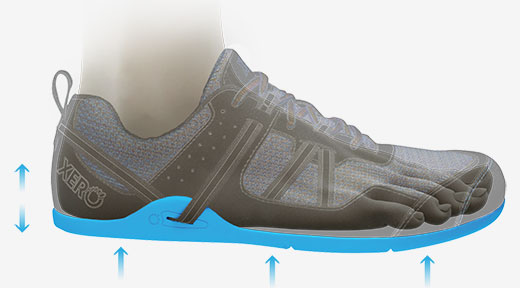Are barefoot shoes suitable for everyone? Can I wear barefoot shoes in cold weather? How long do barefoot shoes last? Can I wear socks with barefoot shoes? Are barefoot shoes waterproof? Do barefoot shoes require special care? Can I use barefoot shoes for sports other than running? Are barefoot shoes good for children? Can barefoot shoes help with foot problems? How do I choose the right size of barefoot shoes? Barefoot shoes cause foot pain. Barefoot shoes are only for running. Barefoot shoes offer no protection. Barefoot shoes are expensive. Barefoot shoes are difficult to find. Features of barefoot shoes: Anatomical shape, Vegan or eco-friendly options. Types of barefoot shoes: Running, Walking, Hiking, Casual, Water, Yoga, Cross-training, Kids'. Brands: Vibram FiveFingers, Xero Shoes.
Introduction
Barefoot shoes have gained popularity in recent years as a way to experience a more natural and minimalist approach to footwear. While they are commonly associated with running and promoting a more efficient stride, many people overlook the fact that these unique shoes can be used for various sports beyond just running. In this article, we will explore different sports and activities where you can unleash the full potential of your barefoot shoes.
Beyond Running: Exploring Sports Other Than Running with Barefoot Shoes
When it comes to exploring sports other than running with barefoot shoes, the possibilities are endless. These versatile footwear options can provide benefits and enhance performance in various activities. Let's take a closer look at some popular sports and how barefoot shoes can be utilized.
1. Hiking with Barefoot Shoes
Hiking is an excellent outdoor activity that allows you to connect with nature and challenge yourself physically. With their lightweight and flexible design, barefoot shoes are a great choice for hiking enthusiasts. The minimal cushioning and wide toe box allow for better grip and stability on uneven terrains. Additionally, the thin sole provides enhanced ground feel, enabling you to navigate through rocky trails with ease.
2. Yoga with Barefoot Shoes
Yoga is all about balance, flexibility, and mindfulness. Practicing yoga in barefoot shoes allows you to experience a more grounded connection with the earth while maintaining stability during different poses. The thin sole of barefoot shoes allows your feet to move naturally and maintain proper alignment.
3. Cross-Training with Barefoot Shoes
Cross-training involves a combination of different exercises to improve overall fitness and athletic performance. Barefoot shoes offer the flexibility and versatility required for cross-training activities such as weightlifting, bodyweight exercises, and agility drills. The minimalist design promotes natural foot movement and helps strengthen the muscles in your feet and lower legs.
4. Water Sports with Barefoot Shoes
Whether you're into paddleboarding, kayaking, or just enjoying a day at the beach, barefoot shoes can be a game-changer in water sports. Their lightweight construction allows for easy maneuverability in the water, while their quick-drying properties ensure maximum comfort throughout your aquatic adventures.
5. Walking and Casual Wear with Barefoot Shoes
While barefoot shoes are often associated with sports and physical activities, they can also be worn for everyday walking and casual wear. The anatomical shape of barefoot shoes mimics the natural contours of your feet, providing optimal comfort during long walks or daily errands. Additionally, many barefoot shoe brands offer vegan or eco-friendly options for those who prioritize sustainability.
FAQs about Barefoot Shoes
Are barefoot shoes suitable for everyone? Yes, barefoot shoes can be suitable for most people. However, individuals with certain foot conditions or injuries should consult with a healthcare professional before transitioning to barefoot shoes.
Can I wear barefoot shoes in cold weather? Yes, you can wear barefoot shoes in cold weather by layering them with thermal socks or using thicker insoles for added insulation.
How long do barefoot shoes last? The lifespan of barefoot shoes can vary depending on factors such as usage, terrain, and care. On average, they can last anywhere from 6 months to 2 years.
Can I wear socks with barefoot shoes? While wearing socks with barefoot shoes is not necessary, some individuals prefer to wear thin toe socks for added comfort or moisture-wicking properties.
Are barefoot shoes waterproof? Most barefoot shoes are not completely waterproof, but they are designed to dry quickly and provide protection against light rain or wet surfaces.

Do barefoot shoes require special care? Barefoot shoes typically require minimal care. Regular cleaning with mild soap and water and air-drying is usually sufficient to maintain their condition.
Conclusion
Beyond running, barefoot shoes offer a world of possibilities for exploring various sports and activities. From hiking and yoga to cross-training and water sports, these unique footwear options provide a more natural and minimalist experience. With their anatomical shape, lightweight design, and versatile functionality, barefoot shoes have become Click here for info a go-to choice for individuals seeking a closer connection to the ground and improved foot strength. So why limit yourself to just running when there's a whole world of sports waiting to be explored with your trusty pair of barefoot shoes?